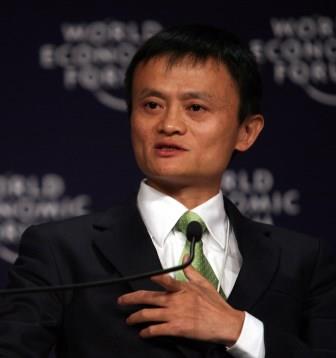Update: On Friday, we told readers that Amazon stock (Nasdaq: AMZN) could see a pullback when Alibaba (NYSE: BABA) goes public this week. Indeed, on Monday, AMZN stock fell 2.2% to $323.89 a share. And on Tuesday morning, shares were down another 1% pre-market.
You see, some tech investors will want to own a piece of Alibaba's profitability, and could swap their AMZN shares for BABA stock. Or, they're under the misconception that BABA will be competing with - and beating - Amazon.
But Alibaba's debut doesn't mean the end of Amazon's stock potential because these companies offer investors two different opportunities. While both giants dominate the two biggest e-commerce markets in the world (the United States and Asia, respectively), they do so in very different ways.
"On a basic level, Alibaba shouldn't pose any real challenge to Amazon right now because the two have very different cultures, very different markets, and very different approaches," Money Morning Defense & Tech Specialist Michael A. Robinson said.
So we took a closer look at how the two companies operate. You'll see they may overlap less than you think...
Alibaba's and Amazon's Differing Approaches to Business

Alibaba CEO Jack Ma
Alibaba's in the business of providing an online marketplace for businesses and consumers, similar to eBay (Nasdaq: EBAY).
That's why it's no surprise that e-commerce accounts for most of Alibaba's business. In 2013, 84% of the company's revenue came from online shopping. Its two most popular sites, TaoBao and Tmall, are BABA's biggest revenue generators. Last year, TaoBao handled $177 billion in transactions, while Tmall handled $70 billion. But TaoBao and Tmall are just a two of Alibaba's e-commerce sites.

Amazon CEO Jeff Bezos
Alibaba.com bills itself as the world's largest online business-to-business trading platform for small businesses. The company also operates a "limited-time only" discount site called Juhuasuan, a comparison shopping site named eTao, and a U.S. online boutique shop called 11 Main.
In contrast, Amazon operates as an online shopping marketplace, but a large part of its business is selling merchandise that it owns to customers.
Amazon has warehouses and a delivery network from which it sells its inventory. And AMZN's inventory consists of its own set top box (Amazon Fire), smartphone (Amazon Fire Phone), and eBook reader (Kindle). The company also offers a grocery delivery (Amazon Pantry), an e-book subscription service, a music streaming service, and a visual media streaming service with original, Amazon-produced content.
Where Alibaba makes money from charging 0.5-1.5% in transaction fees for every dollar sold on its platform, Amazon doesn't count its platform sales toward its revenue. Think of its business model as more akin to a traditional retailer.
And Amazon's way bigger than BABA in terms of sales...
If Alibaba's sales grow at the same rate in the second half of 2014 as they did in the first, the company's annual sales would be roughly $9.5 billion. By comparison, Wall Street analysts expect Amazon to post revenue of $91 billion in 2014. According to Internet Retailer, the average order value on Alibaba in 2013 was $178, compared to Amazon's $220.
"Alibaba is an e-commerce play without the physical attributes Amazon has," Robinson said. "Amazon takes delivery, has roughly ten times the number of transactions Alibaba has, and it's massively bigger than anything else out there."
That's not to say that eventually these two e-commerce behemoths won't directly face off. But right now, AMZN is in a build-out phase, and is focused on increasing its tangible sales and entering new market niches - including recent plans to plant a headquarters on BABA's home turf. BABA seems content largely remaining a pure e-commerce site.
"Right now, Amazon's business model doesn't compete with Alibaba's, which is high profit with a different approach," Robinson said. "I think when the money starts falling to the bottom line for Amazon, it'll change - but that's how it is for now."
Amazon stock traded at $321.55 on Tuesday morning, down 2.91% since Friday. On Sept. 19, BABA stock will likely trade at a higher-than-expected offering price range of $66 to $68 a share.
Follow us on Money Morning's Facebook page. Also, you can join us on Twitter by following @moneymorning.
GoPro Inc. (Nasdaq: GPRO) stock has gained more than 100% since the company's IPO launched on June 26. As an individual investor, you probably couldn't participate in the GoPro IPO (or any IPO). However, that's a good thing; the best way to play GoPro isn't the company's stock. Instead, you can get the most gains by buying the little-known firms that act as suppliers for the big boys. And this supplier provides a way to profit from GPRO indirectly - it's got vanguard technology and a robust presence in wearables...
Related Articles:
- Internet Retailer: Comparing e-Commerce Giants: Alibaba and Amazon


